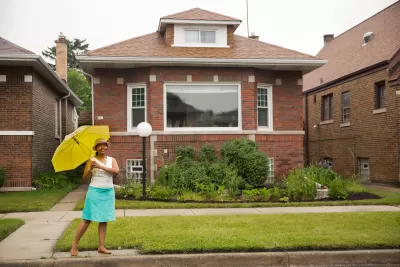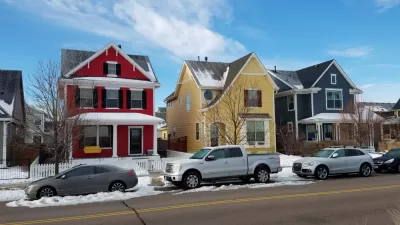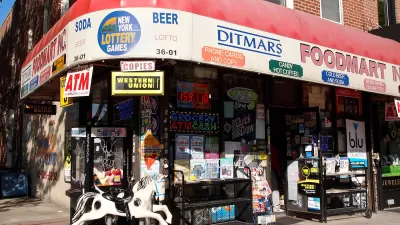According to a series of studies, white people have a blindness for seeing the black middle class in neighborhoods—even if they don't display other forms of racial animus.

"In a series of studies, [Courtney] Bonam [from the University of California, Santa Cruz] has found that white Americans hold ironclad stereotypes about black neighborhoods—even when they display little or no animus toward black people," writes Henry Grabar.
They’re likely to infer from the presence of a black family that a neighborhood is “impoverished, crime-ridden, and dirty,” though they make none of those assumptions about an identical white family in the same house," explains Grabar, while citing more examples in the article.
Bonam calls the phenomenon "invisible middle-class black space, but it it has real world consequences. "One of Bonam’s experiments from 2016, which she modeled after real-life situations, asks participants whether they approve of the siting of a potentially hazardous chemical plant. You can guess what happens: All else held equal, there’s more support for putting it in a black neighborhood."
FULL STORY: Black Space, White Blindness

Alabama: Trump Terminates Settlements for Black Communities Harmed By Raw Sewage
Trump deemed the landmark civil rights agreement “illegal DEI and environmental justice policy.”

Study: Maui’s Plan to Convert Vacation Rentals to Long-Term Housing Could Cause Nearly $1 Billion Economic Loss
The plan would reduce visitor accommodation by 25% resulting in 1,900 jobs lost.

Planetizen Federal Action Tracker
A weekly monitor of how Trump’s orders and actions are impacting planners and planning in America.

Wind Energy on the Rise Despite Federal Policy Reversal
The Trump administration is revoking federal support for renewable energy, but demand for new projects continues unabated.

Passengers Flock to Caltrain After Electrification
The new electric trains are running faster and more reliably, leading to strong ridership growth on the Bay Area rail system.

Texas Churches Rally Behind ‘Yes in God’s Back Yard’ Legislation
Religious leaders want the state to reduce zoning regulations to streamline leasing church-owned land to housing developers.
Urban Design for Planners 1: Software Tools
This six-course series explores essential urban design concepts using open source software and equips planners with the tools they need to participate fully in the urban design process.
Planning for Universal Design
Learn the tools for implementing Universal Design in planning regulations.
Caltrans
Smith Gee Studio
Institute for Housing and Urban Development Studies (IHS)
City of Grandview
Harvard GSD Executive Education
Toledo-Lucas County Plan Commissions
Salt Lake City
NYU Wagner Graduate School of Public Service





























